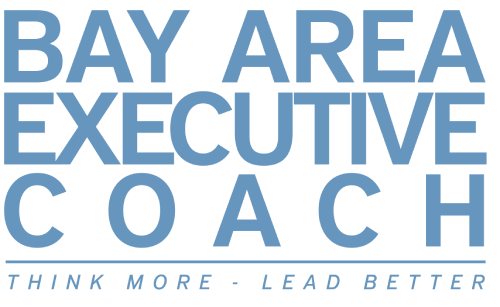The term “emotional intelligence” has become ubiquitous in recent decades. With good reason, as our world fills with advanced technology, human “soft skills” will become increasingly important to offset these changes. As technology takes some of the burdens of our daily tasks, there is also more room to focus on emotions. The World Economic Forum listed Emotional Intelligence in the top ten skills to thrive in the “Fourth Industrial Revolution,” a revolution accelerated by the current Covid-10 pandemic.
Still, many people find the concept of emotional intelligence, confusing and intangible. Intelligence Quotient (IQ) can easily be measured and is fixed. Many countries use IQ tests to decide the future of young students’ educational careers, to determine whether they attend university. However, 70% of the time, workers with high IQs were outperformed by workers with much more average IQs. Although raw intellect is essential, the missing link was emotional intelligence. Psychologist, science journalist and author, Daniel Goleman argues that “soft” skills allow us to leverage our “hard” abilities. Goleman goes into detail about why and how this happens within our brains during a talk at Google. 
EQ (Emotional Quotient) is more challenging to measure and can be improved with practice and training. Some people are naturally more emotionally skilled, but someone can develop high emotional control with awareness and training. This is clearly a worthwhile area of development for companies and their staff. The 2019 State of the Workplace Empathy Study showed that 82 percent of workers would leave for a more empathetic employer, and 78 percent would be willing to work longer hours for them. This is known as discretionary effort and it’s highly valued by leaders during crunch times. A leader’s emotionally intelligent behavior was also linked to employee creativity and innovation, as illustrated in a Yale Center for Emotional Intelligence study.
Justin Bariso, the author of “EQ, applied,” defines emotional intelligence concisely: “Emotional intelligence is the ability to make emotions work for you instead of against you.” According to Goleman, there are five components of EQ: self-awareness, self-regulation, motivation, empathy, and social skills. Self-awareness describes the knowledge of your emotions and how you affect others around you. Self-regulation is about maintaining control over your feelings, not making rushed decisions, not verbally attacking others, or compromising values. Motivation points to working towards your goals and maintaining high standards. Empathy allows you to place yourself in other’s situations. Social skills point to communication skills, conflict resolution, and connecting meaningfully with others.
However important it is to develop these competencies in individuals; the effort is especially essential in developing and supporting teams. In this era of collaboration, employees spend more time in group activities than ever before. Professor of Organizational Behavior, Hillary Anger Elfenbein, published a study examining emotional intelligence in terms of the EI of individual members, as well as “team EI.” Not surprisingly, she found that teams with high average EI have higher team performance than teams with low EI. However, she also found that “team EI,” the emotional savvy that existing team members use when interacting with each other, plays a crucial role. Although individual EI scores can be useful in selecting team members, team EI offers opportunities to improve existing teams’ functioning.
Vanessa Urch Druskat and Steven B. Wolff’s research shows that, just like individuals, any team can attain and improve emotional intelligence. Three necessary conditions are required: trust, group identity (pride), and group efficacy (the belief that more is achieved by working together than alone). To foster these conditions, a team leader should always start with examining and improving their emotional intelligence. Of course, the manager needs to get to know the team, identify members’ strengths and weaknesses, and create an engaging workspace where the team feels valued and has a sense of purpose.
 A fundamental step towards creating a high-functioning team involves defining team norms. Successful leaders understand that creating norms will facilitate how the team works together and improve accountability. Having clear standards provides a reference for the group and facilitates assimilating new team members if necessary. Of course, strong team communication skills are crucial, and all members should have a voice and opportunities to share their ideas.
A fundamental step towards creating a high-functioning team involves defining team norms. Successful leaders understand that creating norms will facilitate how the team works together and improve accountability. Having clear standards provides a reference for the group and facilitates assimilating new team members if necessary. Of course, strong team communication skills are crucial, and all members should have a voice and opportunities to share their ideas.
Managing a high functioning, emotionally intelligent team is a feat under normal circumstances. Managing such a team remotely adds a whole other layer of complexity. The lack of face-to-face supervision is challenging for the manager. The employee has to overcome social isolation, technology problems, and distractions. The current pandemic adds additional emotional impacts for both. For one, we are grieving the personal loss of our “normal” or worse. Some employees may be struggling to set their boundaries now that work and home have unexpectedly merged or may have trouble creating a private workspace. If EQ in leadership and teams was important before this pandemic, it is now de rigueur for successfully leading today’s remote teams.
Fostering trust, group identity, and group efficacy is key to not just surviving but thriving during this challenging time. Siemens, a Global Fortune 500 company known for electronics and appliances, has recently become an example of an emotionally intelligent workplace of the future. Siemens moved to allow their employees to work remotely 2-3 days a week permanently. Not anything radical by itself; however, this change is associated with a shift in management style. Siemens has committed to leadership that focuses on outcomes over hours. They have pledged to trust their employees and empower them with the freedom and support to get the job done.
The transition to this leadership style may seem daunting, but managers can start by taking steps to a healthier team IQ. Google PiLab studied more than 5000 remote employees over two years and came up with three recommendations. 
- Get to know the team. Managers should be thoughtful and personal in their communications, set aside time to share challenges, triumphs, personal interests during meetings, and encourage others to follow.
- Set clear boundaries. As much as possible, leaders should include team members in developing norms for the team. These norms should be communicated and have agreements about communication, meetings, and schedules. Make sure that training, resources, and constructive feedback are readily available.
- Forge connections. Building trust within your team takes effort. Managers should schedule face-to-face time and one-on-one meetings to maintain a personal connection, celebrate successes and milestones, and foster emotional awareness to create a culture of empathy.
Moving towards leadership that focuses on the outcome and values mentoring over managing, allows remote teams to gain ownership. Cultivating a workplace that engages and empowers employees while maintaining a strong connection to the team should improve overall well being.
Justin Bariso, Author, EQ Applied, puts it this way, “If you can’t trust your people, you have a hiring problem.”
While EQ in the workplace has always been valuable and worth cultivating, now is a time when it’s become essential to the operating system. For additional information on how you can foster greater EQ in your organization at an individual, team or corporate level, contact us to talk about it.
Now that you know what role EQ plays in the workplace, consider what leaders need to do to thrive in a VUCA world. Read our article on Two Traits of Strong Leaders in Difficult Times: Tolerance for Ambiguity and Adaptability.
Featured photo sourced from Pexels which can be found here and secondary photo also sourced from Pexels can be found here.










